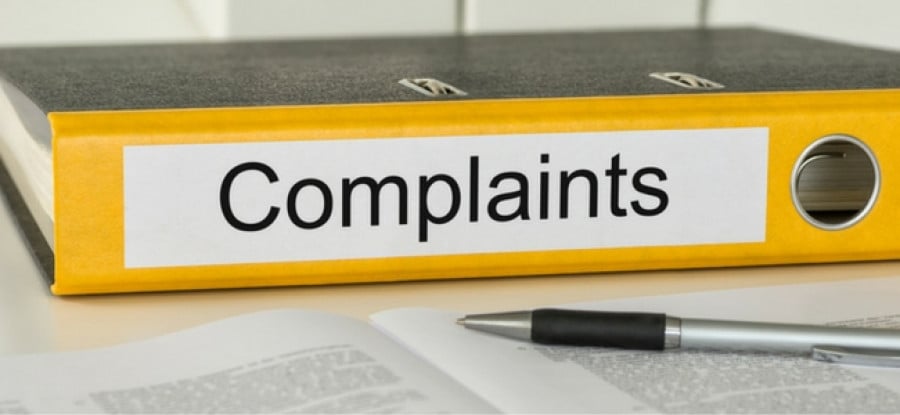Best practice for Sports Governing Bodies when dealing with individual complainants: Part 1 - Internal procedure

The “to-do” lists of sports law practitioners working within, or acting for, sports governing bodies can often be varied, interesting and rewarding ones. At any point in time they may contain items such as negotiating and finalising high value broadcasting and sponsorship contracts; pursuing disciplinary proceedings; defending the governing body's actions from various challenges; drafting coaching and player contracts; intellectual property matters etc.
However, a to-do list might also include (either perennially or from time to time) dealing with an individual with a complaint against the governing body. Such complaints may or may not be justified, may or may not have any legal merit, and can relate (directly or indirectly) to almost any aspect of a governing body's work. For instance, the individual may feel aggrieved by the actions of a local association towards them; they may consider a steward was rude to them; they have been overlooked for promotion as a match official/umpire; they may believe the governing body has copied an idea they had and so on. A number of real life examples of the types of issues raised can be found on the website of the Independent Football Ombudsman (IFO),1 the ultimate body for complaints in English football.
Having reached a lawyer's desk the individual in question might well be someone who exerts considerable time, effort and energy (perhaps also with a certain level of hostility) into their complaint and, particularly in more challenging cases, matters arising from individual complainants can have an unfortunate tendency to take up a disproportionate amount of both time and resources, serving to distract from more important priorities.
This two part article offers practical guidance on how to effectively handle individual complainants, based largely on the author’s experiences as an in house contentious lawyer for a governing body, and thereafter in private practice acting for other governing bodies across a wide range of sports.
It shall consider:
(i) In Part 1 (below) - how to ensure a governing body handles all individual complainants fairly and proportionately, through effective complaint handling mechanisms, looking specifically at:
• Ensuring consistency
• Defining a “complaint”
• Response times
• First response
• Full response
• Complainant response and possible further steps
• Summary flowchart – Example Governing Body Complaints Procedure
(ii) In Part 2 (available here) - how to handle individuals as a lawyer acting within, or for, a governing body.
Whilst this article focuses on sports governing bodies, it is hoped that the content and practical nature of this article might also assist those acting within or for other sporting organisations, perhaps most obviously clubs.
Effective complaints handling
A governing body's legal team can add significant value to the day-to-day operation of the governing body by seeking to ensure that all those who raise complaints with the governing body are treated in a fair and professional manner.
Whilst it is obviously not the role of a legal team to perform a customer services “complaints handling” function, the making of a complaint is the governing body's first contact from an individual expressing discontent with the conduct of the governing body. Therefore, if that person is not handled appropriately, they may understandably become more aggrieved, making it more likely that they will become challenging to deal with and that their grievance will eventually come across the legal team's desk.
In practice, ensuring that a governing body has a robust complaints handling procedure should therefore help to ensure that the scope for legal risk and threats of legal action (and consequent use of legal resource) arising out of complaints is reduced, as well as positively improving the experience of complainants who interact with the governing body. Further, in the event that the governing body's actions in regard to a complaint are subject to later scrutiny by a court, tribunal, regulator, mediator etc., or perhaps some other form of scrutiny (e.g. by the media or an MP), it is likely to be beneficial for the governing body to be in a position to demonstrate that the individual’s concerns were addressed fairly and properly in the first instance.
Set out below are some suggestions that may form the basis of a sensible, straightforward complaints handling procedure (although it is not suggested there is a “one size fits all” approach to this exercise). There are of course numerous examples of complaints procedures that can readily be located on the internet and, in relation to sports governing bodies, I would highlight the Lawn Tennis Association's2 and the IFO's3 as being examples of good practice. In general terms, it is suggested that governing bodies should approach complaints handling in a manner that is fair, open, honest, substantive (yet proportionate) and reasonably prompt.
Ensuring consistency
To continue reading or watching login or register here
Already a member? Sign in
Get access to all of the expert analysis and commentary at LawInSport including articles, webinars, conference videos and podcast transcripts. Find out more here.
- Tags: Dispute Resolution | Independent Football Ombudsman (IFO) | Independent Football Ombudsman (IFO)_ Lawn Tennis Association (LTA) | Lawn Tennis Association (LTA) | Ombudsman | Sports Governing Bodies (SGBs)
Related Articles
- The importance of obtaining effective witness statements in sports disciplinary proceedings
- Who shoulders the blame? An analysis of vicarious liability in the sports industry
- What effects have FIFA’s Intermediaries Regulations had on player representation and commission levels?
- Best practice for Sports Governing Bodies when dealing with individual complainants: Part 2 - Guidelines for legal teams
Written by
Richard Bush
I am an experienced and practically minded sports lawyer, working as a partner in our Media, Entertainment & Sports Group at Bird & Bird in London.
Having trained and qualified at a major city firm, I began my career as a sports lawyer in 2011, working as an in-house lawyer at The FA. In 2014 I went back into private practice with a highly respected boutique sports law firm, before joining the market-leading practice here at Bird & Bird in 2016.
As a consequence, I have experience of advising a wide range of sports organisations (including national and international governing bodies, event organisers, clubs, and rights-holders) across a wide variety of legal issues. I have developed a deep understanding of the wider practical challenges faced by such organisations.

 Global Summit 2024
Global Summit 2024